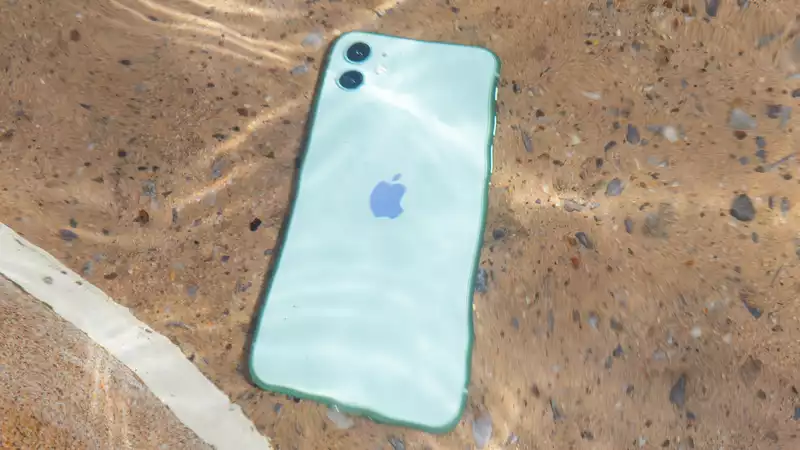Apple is being sued for falsely marketing the water resistance of its iPhones.
The class action lawsuit, filed in the U.S. District Court for the Southern District of New York, alleges that Apple overstates the water resistance of the iPhone and takes issue with the company's failure to cover water damage under warranty.
The iPhone has had various waterproofing features for several years; the iPhone 7 was the first to include this feature, and the current iPhone 12 is IP68 rated, which Apple says is equivalent to "waterproofing to a maximum depth of 6 meters for up to 30 minutes."
According to the complaint, the iPhone's IP waterproof rating is "not adequately qualified by a fine print disclaimer." These disclaimers state that the testing is done in pure water, not in a pool of salt/sea water. According to the complaint, "This means that a consumer who stands at the edge of a pool or ocean and whose device is splashed or temporarily immersed in the water will be denied coverage on the grounds that the water contained chlorine or salt."
Indeed, Apple states in the iPhone 12's fine print that it was "tested under controlled laboratory conditions." It also states that "splash, water, and dust resistance are not permanent conditions and may become less resistant as a result of normal wear."
The lawsuit also claims that Apple recommends that users rinse areas of the iPhone that come in contact with common liquids. Doing so, it claims, could allow more liquid to enter the system and cause the phone's water damage indicator to turn red, which Apple could use as an excuse to deny compensation.
It is worth pointing out at this stage that Apple does not cover water damage under its standard one-year warranty.
Few cell phone companies cover it under warranty, even with an IP waterproof rating. That is the point of this lawsuit. According to the lawsuit, Apple touts the effectiveness of its waterproofing, but refuses to address cases where it may have failed.
In the lawsuit, plaintiff Antoinette Smith, a Bronx County resident, claims that her iPhone 8 experienced contact with water "consistent with the IP rating of her device and how the waterproof properties were presented in the marketing and advertising for the device." Id. Apple then allegedly denied her warranty coverage based on liquid damage.
This forced the plaintiff to "suffer financial loss due to repair costs, reduced functionality, reduced resale value, and/or purchase of a new device."
The lawsuit is described as being brought "on behalf of all others similarly situated." New York consumers, at least, because it alleges that Apple has broken the consumer protection laws of the New York State General Business Law. It also hopes that by demanding a jury trial, Apple will be forced to modify its marketing and provide many of the remedies granted by the court.
This is not the first time the iPhone's waterproofing has been criticized; AppleInsider notes that the Italian antitrust authorities have fined Apple €10 million (about $12 million).
Even if the lawsuit is successful, it is not clear how the outcome will affect other consumers. However, similar lawsuits in other states and countries are likely, and could be a step toward holding phone companies accountable for their marketing claims.










Comments